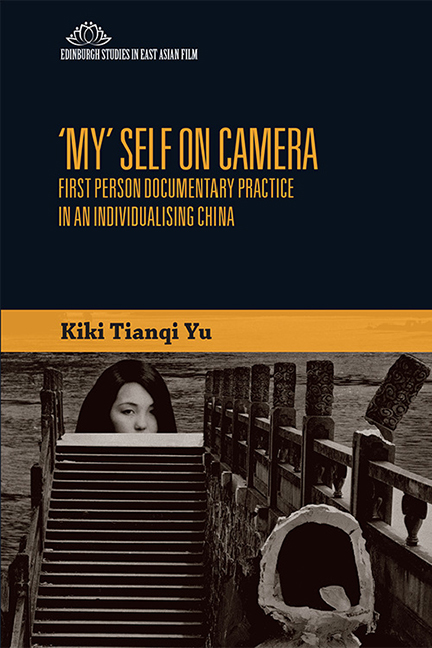Book contents
- Frontmatter
- Contents
- List of Figures
- List of Main Terms with Chinese Translations
- List of Names with Chinese Character Translations
- Acknowledgements
- Dedication
- Introduction: Action, Amateurness and the Changing Sense of the Individual Self
- 1 Female First Person Documentary Practice: Negotiating Gendered Expectations
- 2 Amateurness and an Inward Gaze at Home
- 3 Nostalgia toward Laojia: Old Home as an Imagined Past
- 4 First Person Action Documentary Practice: Longing for a More Politicised Space
- 5 The Problematic Public Self: Ethics, Camera and Language in Contestable Minjian Public Spaces
- 6 Camera Activism: Provocative Documentation, First Person Confrontation and Collective Force
- 7 Whose Self on Camera? Motives, Mistrust, Disputed Authenticities
- 8 From Fragile First Person Documentary Practice to Popular Online First Person Live Streaming Broadcast – Zhibo: Changing Intentions, Changing Individual Selves
- Filmography
- Bibliography
- Index
6 - Camera Activism: Provocative Documentation, First Person Confrontation and Collective Force
Published online by Cambridge University Press: 10 November 2020
- Frontmatter
- Contents
- List of Figures
- List of Main Terms with Chinese Translations
- List of Names with Chinese Character Translations
- Acknowledgements
- Dedication
- Introduction: Action, Amateurness and the Changing Sense of the Individual Self
- 1 Female First Person Documentary Practice: Negotiating Gendered Expectations
- 2 Amateurness and an Inward Gaze at Home
- 3 Nostalgia toward Laojia: Old Home as an Imagined Past
- 4 First Person Action Documentary Practice: Longing for a More Politicised Space
- 5 The Problematic Public Self: Ethics, Camera and Language in Contestable Minjian Public Spaces
- 6 Camera Activism: Provocative Documentation, First Person Confrontation and Collective Force
- 7 Whose Self on Camera? Motives, Mistrust, Disputed Authenticities
- 8 From Fragile First Person Documentary Practice to Popular Online First Person Live Streaming Broadcast – Zhibo: Changing Intentions, Changing Individual Selves
- Filmography
- Bibliography
- Index
Summary
I used to believe in the classic understanding of documentary, which is how I as a filmmaker see a particular reality. But now, I think myself is a medium. The ‘I’ is only produced when the ‘I’ is expressing his or her self. The so-called ‘I’ is in this process, being deconstructed and reproduced. If there is no such process of self expression, there is no self.
Ai Weiwei (interviewed by Zhu Rikun, 2010)This self-portrait of Ai Weiwei (Figure 6.1), the most politically outspoken contemporary Chinese artist, was taken during an arrest on 12 August 2009, at the time of his investigation (along with many volunteers) into the substandard ‘tofu construction’ of school buildings during the aftermath of the 2008 Sichuan earthquake. Ai and his volunteers had travelled to Sichuan to testify in defence of Tan Zuoren, a Sichuan-based writer and environmentalist, who had also been independently investigating the school buildings scandal, but had been prosecuted for subversion of the state power. The night before the trial, the local police forced their way into the hotel room where Ai's group were staying, beat Ai, and arrested one of the volunteers. This is the moment when Ai was accompanied by the police into a lift after being beaten. Ai raised his left hand holding a mobile phone above his head. The flash of the phone-camera sparkles, documenting this moment as visual evidence, as if he were using a gun to fight back against state authority. Immediately after the incident, this image, together with a sound recording, were posted onto social networks and then reposted by thousands of international viewers, creating a strong sense of immediacy and urgency.
In addition to the self-portrait and the sound recording, Ai's volunteer Zhao Zhao also recorded the whole journey with a digital video camera. The footage was soon edited into a documentary entitled Lao Ma Ti Hua (Disturbing the Peace).
- Type
- Chapter
- Information
- My Self on CameraFirst Person Documentary Practice in an Individualising China, pp. 141 - 157Publisher: Edinburgh University PressPrint publication year: 2018



